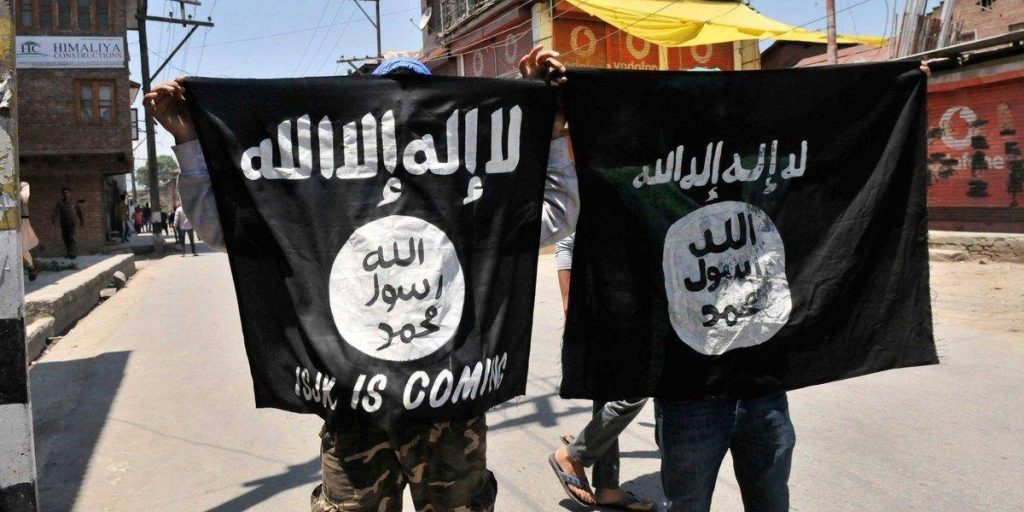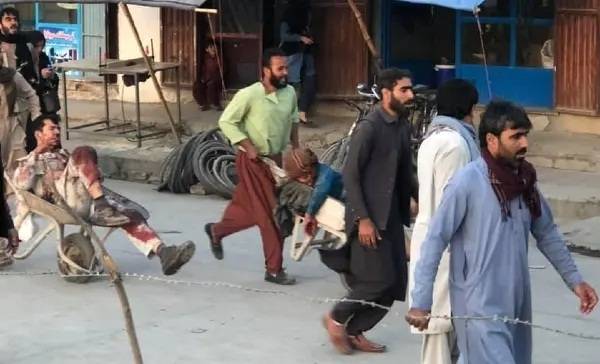This attack came a week after a similar suicide attack at a Shia mosque in northern Kunduz province that killed more than 100 people….reports Mrityunjoy Kumar Jha
As expected, Islamic State Khorasan Province, (ISIS-K) claimed responsibility for the attack on the Shia mosque on Friday in a stronghold of the Taliban. Releasing the pictures of their two suicide bombers, the militant group’s statement says, “Anas al-Khurasani and Abu Ali al-Balushi, ISIS fighters, who first killed the guards at the Shia mosque in Kandahar and then detonated the explosive on their waists in the middle of the crowded worshippers.” The group also warned that there will be more attacks.
This attack came a week after a similar suicide attack at a Shia mosque in northern Kunduz province that killed more than 100 people.
The killings, and other IS bombings — including an attack on a heavily guarded mosque during the funeral of mother of Zabiullah Mujahid, the chief Taliban spokesman, are undermining the Taliban’s claim they have brought security to Afghanistan after taking over in August this year.
On Friday the ISIS-K’s weekly mouthpiece paper Al-Naba mocked the Taliban’s claim of controlling the country’s security and mocked Taliban’s sympathy with the minority Shia community. The article ridiculed the Taliban as fake “jihadists” and that the country was simply handed over to the Islamist rival by the withdrawal of Americans.

While the Taliban are touting their ability to provide security, as an achievement, the ISIS-K with its attacks is seeking to discredit that claim and using the Taliban’s own tactics to attack them. Like the Taliban, the ISIS-K are also using sticky bombs — magnetic bombs usually stuck to the underside of cars — the attacks targeted Taliban members in exactly the same way the Taliban itself used to hit officials and civil society figures to destabilize the previous government.
The Taliban has been struggling to curb a slew of bombings by ISIS-K, which has developed a stronghold in the eastern province of Nangarhar. The provincial capital of Jalalabad has seen regular bombings, which the group have claimed credit for that have killed both Taliban fighters and civilians.
Last week, the US had offered the Taliban help to fight Islamic State terrorism but the group has rejected the offer by saying, “We are able to tackle Daesh independently.”
But analysts have doubts about the Taliban’s claims since they have no experience of governing a nation.
(The content is being carried under an arrangement with indianarrative.com)

Leave a Reply